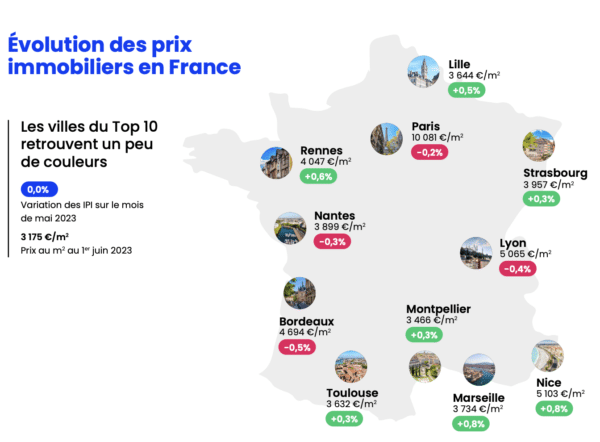Expert Insight, Breaking News, and Insider Stories on Real Estate in Paris
The role of notaires in French property transactions: change on the horizon?
Lawyers do not handle real estate transactions in France. This is the job of notaires, public officials with specialized legal training appointed by the Minister of Justice. Now, the notaires’ fee structure is under review and their monopoly may be ended.
The role and remuneration of notaires in France
The role of the notaire is time-honored and highly respected. Notaires also handle other areas of law, such as family and inheritance law. Their involvement ensures that legal acts are legitimate and authentic.
The notaire normally draws up the preliminary sale contract (promesse de vente), which obliges the vendor to sell the property. A real estate agent can prepare a contract too, but then it’s called a compromis de vente and it obliges both the vendor to sell and the buyer to buy.
A notaire must draw up and sign the final deed of sale (acte authentique de vente) to ensure the transaction is legitimate and complies with all the official requirements.
Notaires’ fees are fixed by law and they collect stamp duty and purchase taxes. These charges vary according to the purchase price but add up in total to around 7% of the price. The bulk of this goes to the government. Above a sales price of €60,000, the notaire’s remuneration is 0.825% (plus VAT, currently at 20%) of the property price.
Notaires’ fees and monopoly criticized
A recent report by public audit and inspection body, the Inspection Générale des Finances (IGF), has criticized the notaires’ fees on property transactions. It states that notaires’ income has increased significantly with property values, while the amount of work has remained the same. The IGF proposes a fixed fee for property transactions, instead.
In addition, the IGF questioned the notaires’ effective monopoly of property transactions. This is also contrary to European Union competition policy.
The IGF also suggested that notaires should be free to set up in business wherever they choose. Currently, they must have State authorization before they can open an office.
The French Minister of Finance, Emmanuel Macron, has said he will continue the government’s policy of reforming the regulated professions.
Not surprisingly, the notaires have counter-attacked. They say that government legislation has greatly increased their property transaction workload in recent years. While notaires have clearly benefited from increases in property prices, their fees are also subject to market fluctuations. And since they operate on behalf of the French State, they offer better protection to both buyers and sellers. Allowing a free-for-all would run counter to this principle, according to the notaires.
What’s the system in other countries?
In countries such as England, Wales and Australia, while a solicitor (lawyer) normally handles the transaction, buyers can also use a licensed conveyancer or even do it themselves. The absence of a monopoly means that these markets are price competitive and most firms offer fixed price services.
In the U.S., the procedures vary state by state and attorneys’ fees may vary depending on location and complexity. Most lawyers charge around 0.5% to 1% of the sales price, while some lawyers charge a fixed fee or on an hourly basis.
The French system has its downsides, but buyers and sellers are clear in advance about what they will pay for and the legality of the transaction is guaranteed. It looks as if the debate will continue for some time.
Contact Paris Property Group to learn more about buying or selling property in Paris.













